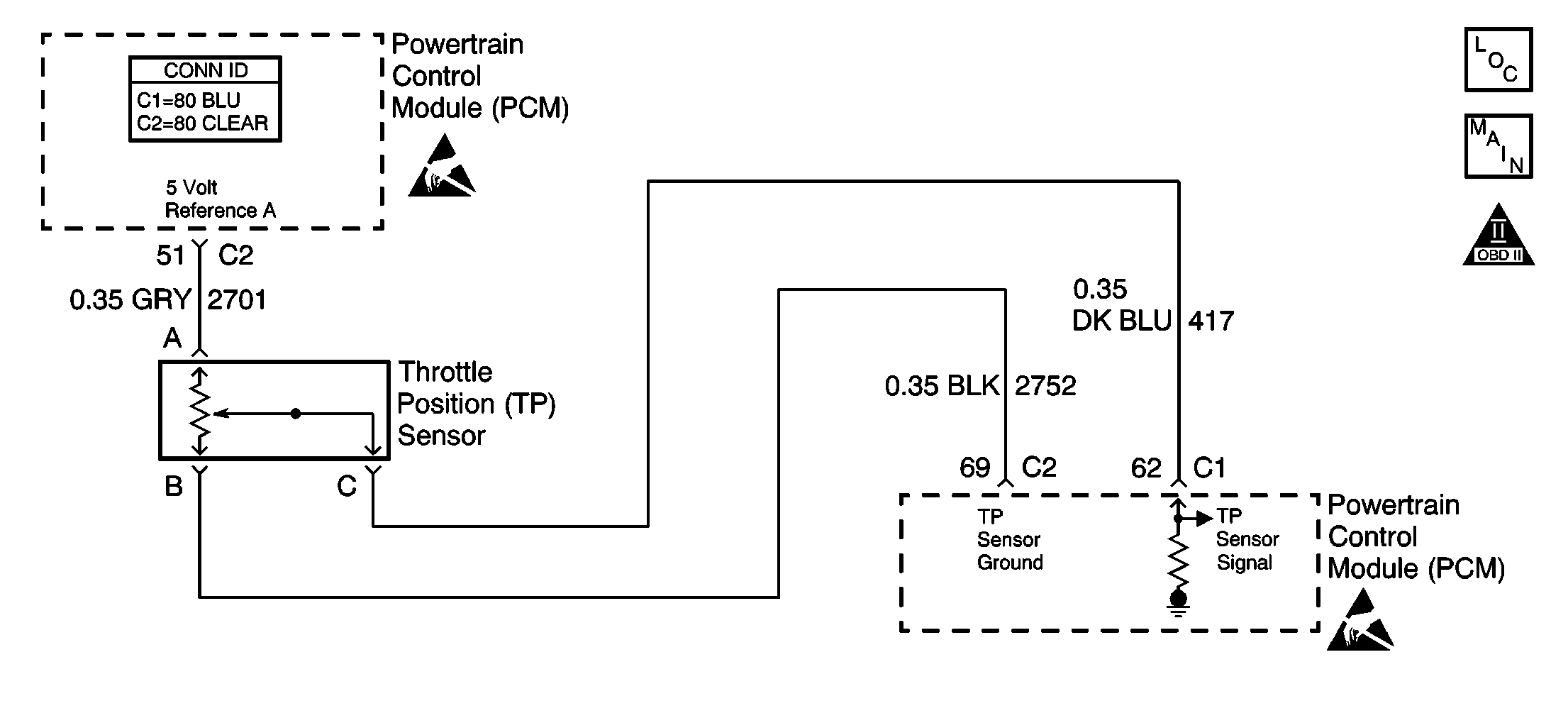
Circuit Description
The throttle position (TP) sensor is potentiometer used to indicate the amount of throttle opening. The PCM supplies the TP sensor with a 5 volt reference and a ground. The TP sensor provides a signal voltage to the PCM relative to throttle blade angle. With the throttle closed, the signal voltage is low. However, the signal voltage increases as the throttle opens. During normal operation, TP signal voltage will vary from below 1 volt at idle to above 4 volts at wide open throttle (WOT). The TP signal is one of the most important sensor inputs used by the PCM for controlling fuel and most of the PCM-controlled outputs. If the PCM detects an excessively high TP sensor signal, DTC P0123 will set.
Conditions for Running the DTC
| • | The engine is running. |
| • | Engine speed is less than 3000 RPM. |
Conditions for Setting the DTC
| • | The TP sensor signal voltage is more than 4.8 volts. |
| • | The condition exists for less than 1 second. |
Action Taken When the DTC Sets
| • | The PCM illuminates the malfunction indicator lamp (MIL) during the second consecutive trip in which the diagnostic test runs and fails. |
| • | The PCM stores the conditions present when the DTC set as Freeze Frame/Failure Records data. |
Conditions for Clearing the MIL/DTC
| • | The PCM will turn the MIL OFF after the third consecutive trip in which the diagnostic runs and passes. |
| • | The history DTC will clear after 40 consecutive warm-up cycles have occurred without a malfunction. |
| • | The DTC can be cleared by using the scan tool Clear DTC Information function. |
Diagnostic Aids
If the condition is intermittent, refer to Intermittent Conditions in Symptoms.
Step | Action | Values | Yes | No | ||||||
|---|---|---|---|---|---|---|---|---|---|---|
1 | Did you perform the Powertrain On Board Diagnostic (OBD) System Check? | -- | ||||||||
2 | Is DTC P1635 also set? | -- | ||||||||
3 |
Does the scan tool indicate a TP sensor voltage near the specified value? | 0.5V | Go to Diagnostic Aids | |||||||
4 |
Does the scan tool indicate a TP sensor voltage near the specified value? | 0V | ||||||||
5 |
Did you find and correct the condition? | -- | ||||||||
6 |
Did you find and correct the condition? | -- | ||||||||
7 | Replace the TP sensor. Refer to Throttle Position Sensor Replacement . Is the action complete? | -- | -- | |||||||
8 |
Important: The replacement PCM must be programmed. Replace the PCM. Refer to Powertrain Control Module Replacement/Programming . Is the action complete? | -- | -- | |||||||
9 |
Does the scan tool indicate that DTC P0123 passed? | -- | System OK |
